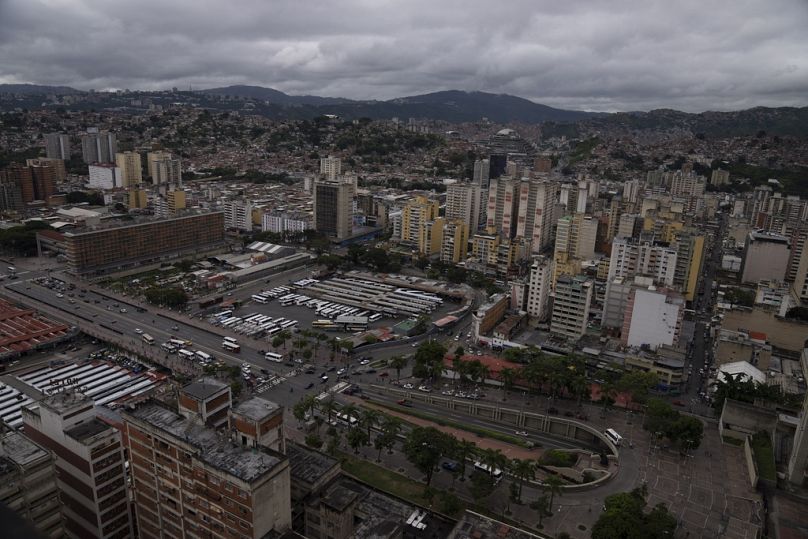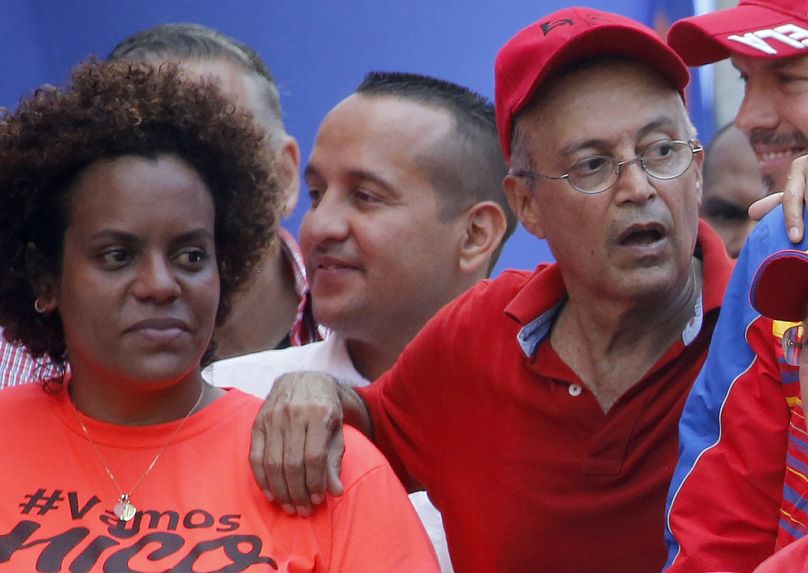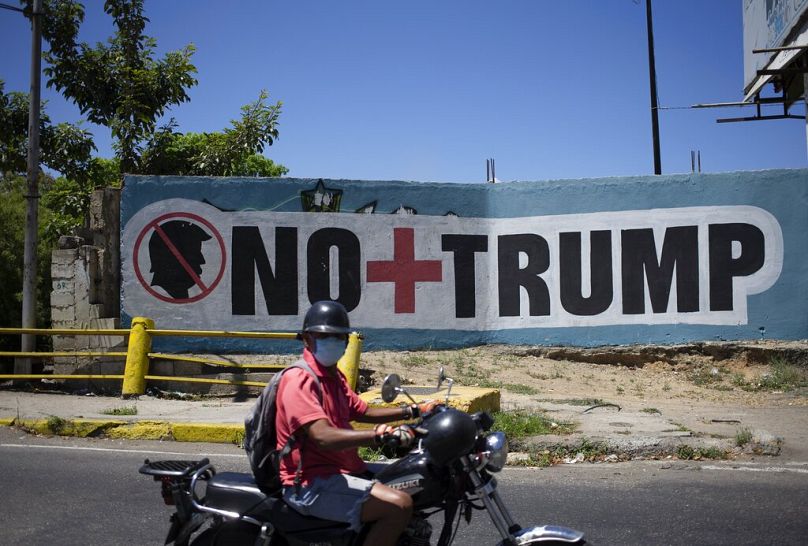Some of President Maduro's closest allies have been caught up in the investigation, including Alex Saab, the businessman recently released in a prisoner swap.
A secret memo obtained by The Associated Press details a years-long covert operation by the US Drug Enforcement Administration that sent undercover agents into Venezuela to secretly record and build drug-trafficking cases against the country's leaders.
A plan that the US admitted from the start was arguably a violation of international law.
"It is necessary to conduct this operation unilaterally and without notice to Venezuelan officials," reads the 15-page 2018 memo expanding "Operation Money Badger," an investigation that authorities say targeted dozens of people, including Venezuelan President Nicolás Maduro.
While there's no clear mechanism to hold the US legally accountable, the revelation threatens to upset already fraught relations with Maduro's socialist government and could deepen resentment of the US across Latin America over perceived meddling.
It also offers a rare window into the lengths to which the DEA was willing to go to fight the drug war in a country that banned US drug agents nearly two decades ago.
Some of Maduro's closest allies were swept up in the investigation, including Alex Saab, the businessman recently released in a prisoner swap for 10 Americans and a fugitive defence contractor.
But until now, it has not been clear that US investigations into Venezuela have involved legally dubious tactics.
'Flooding us with dope'
"We don't like to say it publicly, but we are really the world's police," said Wes Tabor, a former DEA official who served as the agency's country officer in Venezuela long before the investigation described in the memo.
Tabor, who would not confirm the existence of such operations, said unilateral, covert action can be an effective tool when conducted with proper limits and accountability, particularly in a country like Venezuela, where the blurred lines between the state and the criminal underworld have made it an ideal transit point for up to 15% of the world's cocaine.
"We're not in the business of abiding by the laws of other countries when those countries are rogue regimes and the lives of American children are at stake," he said. "And in the case of Venezuela, where they're flooding us with dope, it's worth the risk."
The DEA and Justice Department declined to answer questions from the AP about the memo, how often the US conducts unilateral operations, and the makeup of the panel that approves such operations.
Cross accusations
Venezuela's communications ministry did not respond to requests for comment. But in recent days Maduro has accused the DEA and the CIA - a regular target of his rallies - of trying to destabilise the country. The CIA declined to comment.
"I don't think President Biden is involved," Maduro said in a television appearance this month. "But the CIA and the DEA operate independently as imperialist criminal organisations."
The never-before-seen document was written at the height of Republican President Donald Trump's maximum pressure campaign to remove the Venezuelan president.
Maduro had just taken an authoritarian turn, winning what the Trump administration condemned as a sham re-election in 2018. Within weeks, senior DEA officials planned to deploy at least three undercover informants to secretly record top officials suspected of turning Venezuela into a narco-state.
But because the plan appeared to run roughshod over Venezuelan and international law, it required the approval of the Sensitive Activity Review Committee, or SARC, a secretive panel of senior State and Justice Department officials reserved for the DEA's most sensitive cases involving tricky ethical, legal or foreign policy considerations.
The operation targeting Maduro's inner circle is not the first time the US has conducted law enforcement operations overseas without notifying the host country.
What did the US find out?
The memo harkens back to an earlier era of rising hostility between the US and Venezuela, when ambitious federal investigators in several districts - New York, Miami, Houston and Washington - competed to see who could penetrate Venezuela's criminal underworld the deepest.
As part of this undeclared race, Group 10 of the DEA's Miami Field Division recruited a dream informant: a professional money launderer accused of siphoning $800 million from Venezuela's foreign exchange system through a fraudulent import scheme.
The informant's illicit activities in Venezuela positioned him to help the DEA gather evidence against the unilateral operation's primary target: Jose Vielma, an early acolyte of the late Hugo Chávez who rose through a series of top jobs in two decades of service to the Bolivarian revolution.
Vielma's alleged accomplice, according to the DEA document, was another former military officer: Luis Motta, then minister of electricity. The DEA memo authorised three informants to secretly record undercover meetings with the targets.
"There is a particular risk that the (confidential sources) would be endangered if their cooperation with the DEA is revealed to host country officials," the memo reads. "Potential penalties include imprisonment."
Whether the risks were worth it remains an open question.
Vielma and Motta were charged with money laundering in connection with bribery - not drug trafficking. Both remain in Venezuela and loyal to Maduro, with Vielma serving as a senior lawmaker and Motta's wife as the governor of a major state. But like dozens of Maduro insiders wanted in the US, neither is likely to face justice - despite a $5 million reward for Motta's arrest - unless they travel outside Venezuela.














